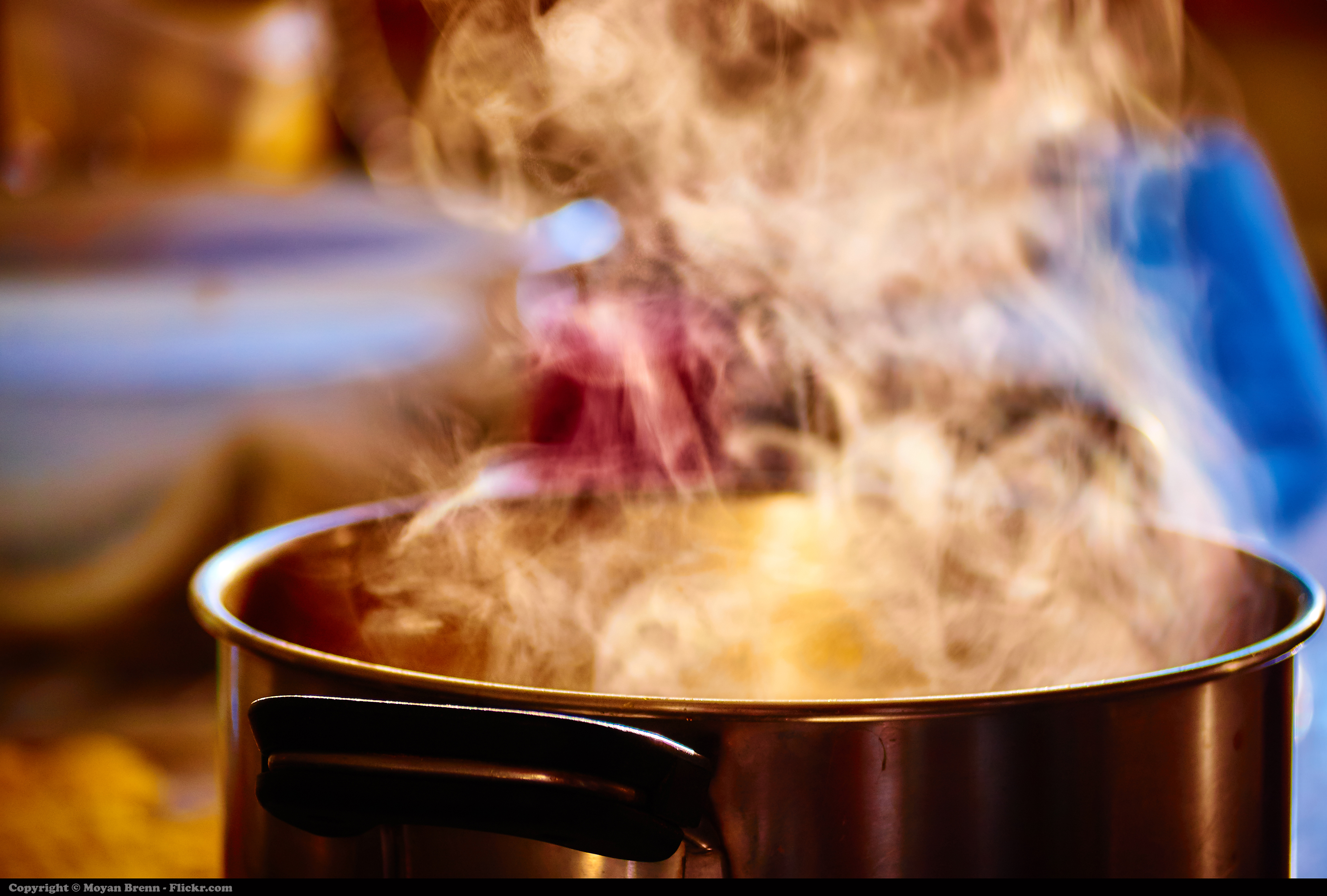We recently had a submission from a reader asking us to write a blog post covering how to remove foul cooking smells.
Whether it’s the once mouthwatering odours that linger from your own cooking, or you have a culinarian of a neighbour who dishes up the stink, read on to find out tips on how to neutralise the air in your home once more.

Common Culprits
We all know certain foods cause some pretty awful (and often incredibly strong!) smells: fish, onion, garlic, curry, fried food (particularly dirty oil), seaford, kidneys, and let’s not forget the best; burnt food.
But did you know that it’s believed that a lot of what we perceive to be pleasant and unpleasant smell actually comes from memory and association? If we have a happy memory or association, we enjoy the smell, and vice versa for bad memories.
But what Causes Bad Smells?
Besides the above belief about food association, it is thought that the amount of water used during cooking has a direct impact on unpleasant aromas, ie. it amplifies the smell. For example: roasted chicken vs boiled chicken and the difference in smell produced.
When food cooks, reactions occur that cause molecules known as “volatiles”. These volatiles evaporate easily and rapidly, meaning that they can travel to your nose and around your home and hence, you notice the smell.
But have you ever wondered why the smell is the strongest during cooking? It’s because the heat from the cooking actually increases the rate of vaporation.
Great! But How Do I Actually Remove Bad Smells?
We feel your pain! No matter how nice a meal was, nothing is worse than smelling it for the next three days straight. It’s just not as mouthwatering the morning after.
We’ve scoured the realm of the internet and found these tips on removing bad cooking smells. We thought recommending our odour neutralising service might be a bit overkill for now… (Although you may be surprised to learn that we found some stories where smells had lasted for months! So if this is you, feel free to contact us for help.)
Let us know if you try any of the following and whether or not they worked for you.
- Leave a bowl of boiling water with some sliced lemon in, in the most affected room(s) while you sleep/go to work.
- Soak some cotton balls in vanilla extract and again, leave in the most affected room(s) while you sleep/go to work.
- Slice some potatoes and leave them out; they’re naturally absorbent and will apparently absorb the smell. You should notice a difference within a couple of hours.
- Bake some cinnamon or boil a couple of sticks (not only should it help get rid of the smell, but it’ll help you get into the Christmas spirit, too!).
- Ventilate. A lot. The more air circulation and fresh air you can bring into the affected room(s), the better.
- Mix a few tablespoons of baking soda with water in a slow cooker and put it in the affected room with the lid off. Put it on a low temperature and wait. Add some essential oils or pleasant smelling spices for a boost to the aroma.
If you live in an apartment or flat, you may have issues with smells coming up from the floor below. This seemed to be a common problem while we were conducting our research for this blog post.
Some helpful advice given by others who have experienced similar problems is to ensure there are no gaps in flooring, cupboards and in the sealant itself (ie. around skirting boards). Several people noticed an improvement after fixing these issues.
Hopefully some of the above tips will work for you, but if not, or the smell lingers for days or weeks, then get in touch with us to see if our odour neutralisation service could help. Sometimes, odours can become trapped in porous materials such as plasterboard and need a little extra help to remove than what can be done using the DIY methods above.



